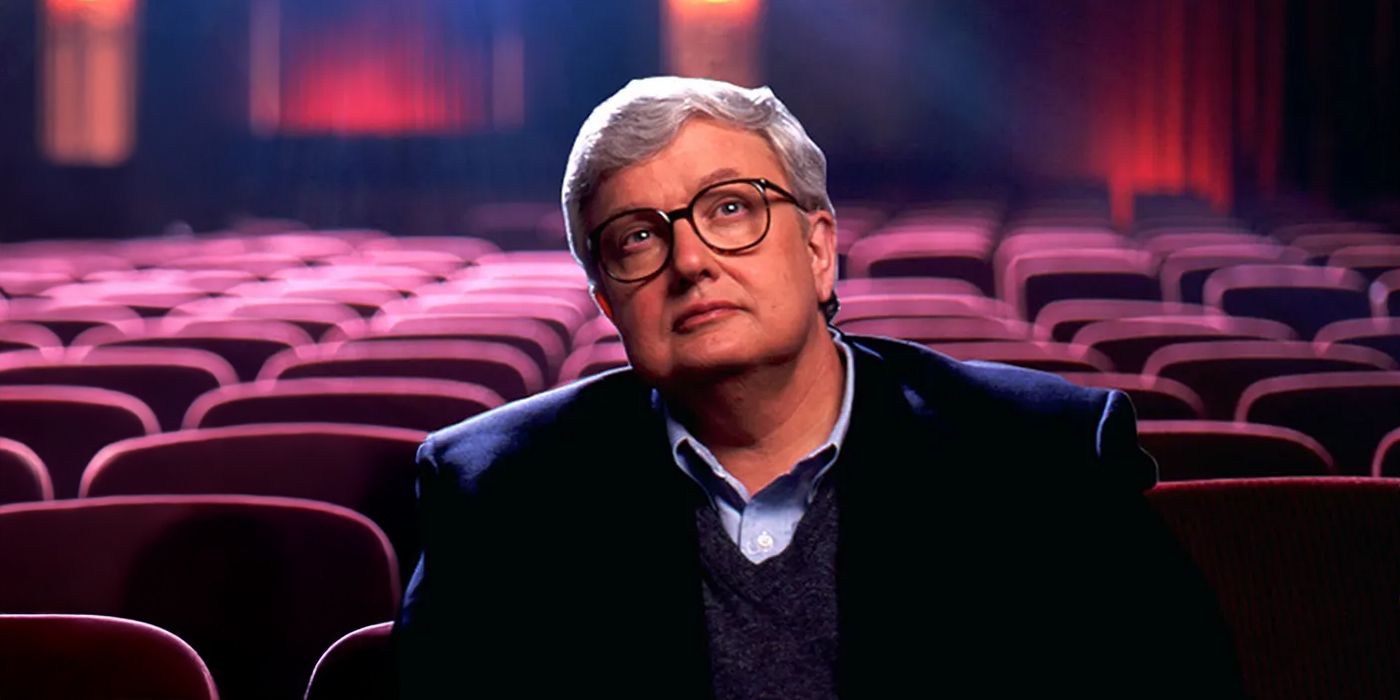When you search for "Roger Rodas Wikipedia," you're likely looking for details about a specific individual, perhaps someone notable or connected to a significant event. It's a very common thing, you know, to look up people and their stories. However, our provided text, which serves as the foundation for this discussion, actually offers a much broader, and in some ways, quite fascinating look at the name "Roger" itself. It turns out, the word "Roger" has a surprisingly rich history and connects to a whole bunch of different, interesting figures.
So, while our information doesn't specifically detail "Roger Rodas" as an entry, it does give us a wonderful chance to explore the many roles and meanings associated with "Roger." We'll see how this single word has popped up in military communications, graced the names of Nobel laureates, and even appeared in the world of academic literature and music. It's almost like the name "Roger" itself has its own little Wikipedia entry, just spread across various fields, you might say.
This article will, in a way, take you on a journey through these different facets of "Roger," drawing directly from the text we have. We'll look at its historical use, meet some remarkable people who carried the name, and maybe even touch on some other related concepts. It's a bit of a different angle, to be honest, but one that really shows how a simple name can have so much depth and connection to various parts of our lives.
Table of Contents
- The Historical "Roger": From Military to Everyday Use
- Roger Tsien: A Nobel Laureate in Chemistry
- Roger A. Horn: A Guiding Light in Matrix Analysis
- Roger Guillemin: Another Pioneer in Science
- The Philanthropic Roger: A Voice for Good
- Other Noteworthy Connections to "Roger"
Roger Guillemin: A Pioneer in Science
Since our text mentions a few notable individuals named Roger, and specifically provides some biographical details for Roger Guillemin, let's take a closer look at his life as described. It's really quite something, the contributions these individuals make to their fields, and Roger Guillemin is certainly no exception. He was, apparently, a very bright person from a rather comfortable background, which is always interesting to learn about.
Personal Details & Bio Data
| Detail | Information |
|---|---|
| Full Name | 罗歇·吉耶曼 (Roger Guillemin) |
| Birth Date | January 11, 1924 |
| Death Date | February 21, 2024 |
| Birthplace | Dijon, Burgundy, France |
| Family Background | Born into a well-off middle-class family; father was a machine tool manufacturer. |
| Early Life | Parents, despite modest education, highly valued their children's learning. |
| Childhood Interests | Showed a strong interest in science from a young age, enjoyed collecting plant specimens. |
| Nationality | French |
The Historical "Roger": From Military to Everyday Use
It's fascinating, really, how words evolve and stick around, isn't it? The term "Roger" is a prime example of this, as our text points out. Back around the 1940s, during a time of great global change, the British and American military forces had a pretty neat way of making sure messages were clear. They needed something short and sweet to acknowledge that a communication had been received and understood. So, they used "Roger" to represent the letter "R," which was the first letter in "received." It's a simple system, but quite effective, you know, for avoiding confusion in high-stakes situations.
During World War II, especially within the American military, saying "Roger" became the shorthand for "received." It was a quick, unmistakable way to confirm that the message had gotten through. This little word, then, became a vital part of everyday military talk, ensuring smooth operations and clear lines of communication. It's almost like a secret handshake, but for radio waves, you could say.
What's truly remarkable is that even though the alphabet used for spelling out words in radio communication has changed quite a bit over the years, the meaning of "Roger" as "received" has stuck around. It's still very much in use today, which is a testament to its clarity and usefulness. The text also mentions "Copy" in radio communication, which is, in a way, quite similar to "Roger." Both terms mean that a command or message has been heard and understood. So, it's not just "Roger" that serves this purpose, but it certainly became the most widely recognized one, and has, in some respects, remained a staple.
Roger Tsien: A Nobel Laureate in Chemistry
Shifting gears a bit, our text introduces us to another incredibly important "Roger," namely Roger Tsien. This Roger was a true giant in the scientific community, someone whose work had a massive impact. He was, as the text plainly states, a recipient of the Nobel Prize in Chemistry in 2008. That's a pretty big deal, you know, a very significant achievement in the world of science.
The text also tells us that Roger Tsien passed away on August 24th in Eugene, Oregon. This piece of information, while brief, really highlights the passing of a remarkable mind. When someone of his caliber leaves us, it's a moment for reflection on their academic achievements and the legacy they leave behind. His work, which earned him that prestigious Nobel, must have been truly groundbreaking, altering how we understand certain chemical processes, or perhaps even opening up entirely new avenues of research. It's quite inspiring, honestly, to think about the kind of dedication and brilliance that goes into such discoveries.
While our text doesn't go into the specifics of his Nobel-winning work, the mention itself speaks volumes about his stature. People who get a Nobel Prize are typically those who have, you know, fundamentally changed their field. So, Roger Tsien's name, when it comes up, is immediately associated with top-tier scientific excellence and innovation. He's a Roger whose impact will be felt for a very long time, especially in chemistry and related areas.
Roger A. Horn: A Guiding Light in Matrix Analysis
Then there's Roger A. Horn, a name that resonates deeply within the academic world, particularly for anyone studying advanced mathematics. Our text highlights his significance in the field of matrix analysis, which, let's be honest, sounds pretty complex to most of us. But for those in the know, his work is absolutely foundational, a cornerstone of the subject. He's known for a book that's, apparently, quite famous.
The text specifically mentions "Matrix Analysis 2nd," written by Roger A. Horn. This book is described as being quite comprehensive, covering all sorts of aspects of the subject. It's the kind of book that, you know, you'd turn to if you wanted a deep, theoretical understanding of matrices. It's not just a casual read; it's a serious academic work, the kind that shapes how students and researchers approach the subject. So, his contribution here is really about building a solid theoretical framework, making complex ideas more accessible, in a way, to those who are ready for them.
The text also subtly differentiates his work from more applied texts, like "Matrix Computation 4th" by Golub. This distinction is interesting, suggesting that Roger A. Horn's book is more about the pure theory, while others might focus on practical applications. This tells us a lot about his focus: he's someone who really digs into the underlying principles. For anyone looking for a truly authoritative text on matrix analysis, Roger A. Horn's name, and his book, would, you know, probably come up right away. It's considered a master-level work, and quite rightly so, it seems.
Roger Guillemin: Another Pioneer in Science
It's quite remarkable, really, how many significant figures named Roger appear in our text. We've already touched upon Roger Tsien, and now we circle back to Roger Guillemin, another Nobel laureate whose life and work are briefly outlined. He's, in a way, a testament to the power of early curiosity and supportive environments. Born on January 11, 1924, in Dijon, France, he came from a family that, you know, had a stable income, his father being a machine tool manufacturer. This kind of background often provides a good foundation for intellectual pursuits, doesn't it?
What really stands out about Roger Guillemin, as our text mentions, is his parents' approach to education. Even though they themselves might not have had high levels of formal schooling, they clearly understood its importance and really valued their children's learning. This kind of encouragement from home can make all the difference, sparking a lifelong love for discovery. It's a pretty common story, actually, for many successful people, that initial push from family.
His early life showed clear signs of his future path. The text tells us that Roger Guillemin had a strong interest in science from a young age. He even enjoyed collecting plant specimens, which is a very hands-on way to engage with the natural world. This early passion for observation and collection often translates into a keen scientific mind later on. So, his journey to becoming a Nobel Prize winner seems, in some respects, to have been set in motion quite early, fueled by curiosity and family support, leading him to make incredible contributions to his field.
The Philanthropic Roger: A Voice for Good
Beyond the world of science and academia, our text introduces us to yet another Roger, this time a figure dedicated to making a difference through philanthropy and music. This Roger, in his later years, apparently became quite passionate about charity work. It's always heartening to see people use their platform or their later life to contribute to important causes, isn't it?
He was, we're told, a very important member of an organization focused on supporting young people battling cancer. This is, you know, a cause that touches so many lives, and it's truly commendable that he dedicated his time and energy to it. To help teenagers facing such a difficult illness is a very noble endeavor, and his involvement would have brought much-needed attention and resources to the group. It's a good example of how individuals can really create positive change in the world, just by getting involved.
What's more, this Roger uses his musical talent for fundraising. He holds charity concerts annually to raise money for the organization. This is a brilliant way to combine passion with purpose, using his singing ability to benefit others. The text also touches on his singing voice, noting that he had a natural gift but that his vocal range and tone were, at first, a bit limited, perhaps typical of pop idols from the 1960s. However, it suggests his singing improved significantly after his work on "Tommy," implying a development in his craft over time. So, he's a Roger who not only gave back to the community but also refined his artistic expression, which is pretty cool, honestly.
Other Noteworthy Connections to "Roger"
Our text, in a way, sprinkles in a few other interesting tidbits that, while not directly about a person named Roger, still connect to broader concepts of names, communication, and even biology. It's kind of like finding little extra insights tucked away in the corners of the information provided. For instance, there's a mention of PROTAC, which stands for Protein Hydrolysis Targeting Chimera. This is a very specific scientific concept, and the text describes it as using a natural protein degradation mechanism. It's a double-function molecule, apparently, with three key parts: one that connects to an E3 ligase enzyme, another that links to a target protein, and a middle part that acts as a connector. While this doesn't feature a "Roger," it shows the breadth of topics our source covers, including cutting-edge biological research.
Then there's a practical point about American naming conventions. The text explains that people in the U.S. typically put their first name before their last name. This is why they're called "first" and "last" names, based on their position. It uses Sheldon Cooper from "The Big Bang Theory" as an example, noting that Sheldon is his first name and Cooper is his last. This is, you know, a pretty straightforward cultural point, but helpful for anyone not familiar with the custom. It's a simple clarification that, in some respects, helps avoid confusion when dealing with names.
Finally, the text touches on the rise of the term "CEO" (Chief Executive Officer) in China, especially since the information industry began to boom and the dot-com bubble emerged. It points out that "CEO" became a very popular term, with general managers and presidents often changing their titles to this abbreviation. The text suggests that "CEO" was seen as more concise and, interestingly, more "sacred" in the eyes of Chinese people compared to its full translation, "Chief Executive Officer." So, this led to a situation where "CEOs" were, apparently, everywhere. It's a glimpse into how language and titles can evolve with economic and cultural shifts, and while not directly about a "Roger," it's about leadership roles that a "Roger" might, you know, potentially hold.
Frequently Asked Questions About "Roger"
People often have questions about the name "Roger" and its various associations. Here are a few common ones, drawing from the kinds of things our text hints at:
What does "Roger" mean in military communication?
In military communication, especially back around the 1940s in the UK and US, "Roger" was used to represent the letter "R." This "R" stood for "received," meaning the message had been heard and understood. It became a very quick and clear way to acknowledge a message, and, you know, it's still used today to mean "message received" or "understood." It's a pretty enduring piece of communication history, actually.
Are there any famous scientists named Roger?
Yes, our text highlights at least two very famous scientists named Roger. One is Roger Tsien, who won the Nobel Prize in Chemistry in 2008. The other is Roger Guillemin, another Nobel laureate, whose life details are also briefly mentioned. Both of these individuals made significant contributions to their respective scientific fields, which is, you know, quite impressive. Their work certainly left a lasting mark.
What is "Matrix Analysis" and who wrote a famous book about it?
Matrix Analysis is a field of mathematics that deals with matrices, which are, basically, rectangular arrays of numbers or symbols. Our text mentions a very well-known book on the subject called "Matrix Analysis 2nd," written by Roger A. Horn. This book is considered a master-level work, covering many aspects of the theory. It's the kind of book that, you know, serious students and researchers in the field would turn to for comprehensive understanding.
To learn more about radio communication on our site, and link to this page various scientific discoveries.
)


Detail Author:
- Name : Dr. Shemar Swaniawski
- Username : philip.ferry
- Email : cronin.mustafa@barton.biz
- Birthdate : 2005-08-17
- Address : 4635 Esteban Orchard Apt. 771 Monahanport, KY 63962
- Phone : (314) 891-5459
- Company : Kub-Kessler
- Job : Nuclear Power Reactor Operator
- Bio : Amet est est nemo ipsam molestias odit. Quae laborum libero sed amet nobis. Iure vero molestiae soluta et asperiores. Est id placeat voluptatem sint distinctio.
Socials
linkedin:
- url : https://linkedin.com/in/ewest
- username : ewest
- bio : Et maxime qui odit nisi ratione fugit.
- followers : 427
- following : 976
tiktok:
- url : https://tiktok.com/@elsa4798
- username : elsa4798
- bio : Neque excepturi aut asperiores et. Et quasi architecto iste sed modi.
- followers : 5634
- following : 1999